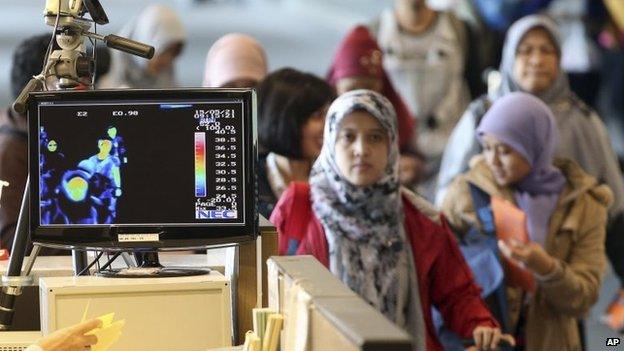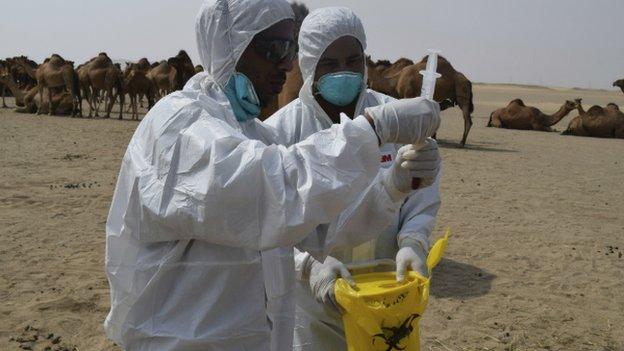Mers virus: Concern growing in South Korea
- Published

Seven people have been confirmed with the virus in South Korea
Concern is growing in South Korea over the spread of the Mers virus after a man defied quarantine to travel to China.
Seven people have been infected with the disease so far in South Korea, said the country's health ministry.
Chinese officials said they had traced the son of a patient who had refused voluntary quarantine.
Cases of the virus, for which there is no known cure, have been confirmed in more than 20 countries.
Two new cases of Mers (Middle East Respiratory Syndrome) in South Korea were confirmed on Thursday.
The health ministry said that all of them had been linked to a man who returned from the Middle East - where Mers is more common.
Dozens of people are now in quarantine.
'Deeply sorry'
Meanwhile, Chinese officials said they had identified and isolated a South Korean man who had ignored quarantine restrictions to fly to China through Hong Kong.
Local media said that health workers had contacted 35 people who came into close contact with him.
His father was diagnosed with the virus earlier in May.
"We should have checked more actively and broadly on family-related issues. We are deeply sorry about that," said Yang Byung-kook, director of the Korea Centers for Disease Control and Prevention.

What is Mers?

Acronym for Middle East Respiratory Syndrome
A type of coronavirus which causes respiratory infections
First death recorded in 2012 in Saudi Arabia
Camels are suspected to be the primary source of infection for humans

Mers was first identified in humans in 2012 and is a type of virus from the same family as Sars (severe acute respiratory syndrome).
Sars killed almost 800 people in an outbreak that began in 2002.
There is no cure or vaccine for Mers.
The World Health Organization (WHO) has reported, external a total of 1139 cases of Mers globally and at least 431 deaths.
- Published6 May 2014

- Published5 June 2014

- Published15 September 2014

- Published15 September 2014

- Published23 June 2013

- Published5 July 2013
